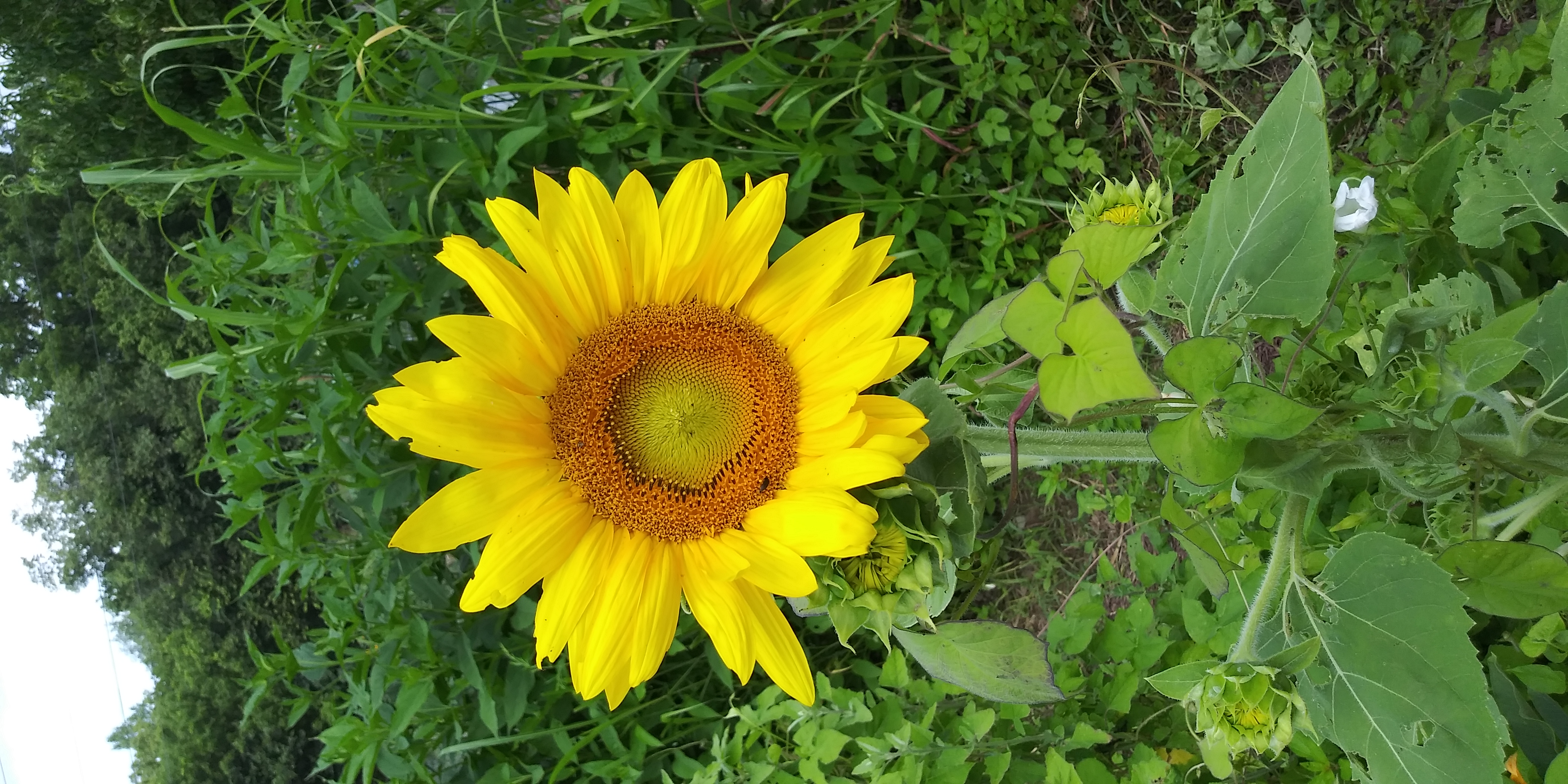
Article and sunflower photo by Sharon Boyles, LCR member
Everything that slows us down and forces patience, everything that sets us back into the slow circles of nature, is a help. Gardening is an instrument of grace. ~May Sarton
It’s an odd time of year to be thinking about gardens, but as I go into winter mode, turn inward, and become more reflective and contemplative, I find myself thinking of the garden I had last summer.
I signed up for a plot at the Mariemont community gardens, not knowing that this was going to be more of a spiritual experience than a gardening experience.
The garden itself did not go very well. Two months in, the adventure was pretty much just sweat, frustration, and tears as I dealt with my inexperience and the challenges of poison hemlock, blazing sun, ardent mosquitoes, and, as one fellow gardener drastically understated, “a heavy weed load.”
But! Although my garden was not a success in a traditional sense, it was enormously successful in a spiritual sense. Nature is one of my greatest teachers, and my garden gently taught me a few lessons that are now shaping my intentions for the New Year and helping me plan a resonant and beautiful life for 2024:
Lesson #1: Patience
Not my favorite. A garden teaches that things don’t grow overnight (well, except for weeds), and our mindset of NOW is not the way. It’s important to know when to ease up and let things unfold in their own way and time. Relaxing into right timing, God’s timing, is something worth practicing.
May the practice of patience transform your life this year.
Lesson #2: Trust
The garden knows what it’s doing. Every time I tried to be in control, the garden would skid out of control. The same is true in life. Every time I try to wrestle my life into what I think it should look like, it backfires. So, this year, I’m trusting that I am in God’s good hands and that she knows what she’s doing. All manner of things shall be well and better than well if I let go and trust God.
May your life this year be filled with moments of radical trust.
Lesson #3: Fun Surprises
I found fun stuff in my garden that I didn’t plant. Asparagus, cabbages, and sunflowers were wonderful surprises, and I enjoyed the gifts. The best stuff in life comes when we aren’t looking for it, because that’s when we’re most open to receiving God’s delights and beauties.
May your life this year sparkle with good surprises.
Lesson #4: Inclusion
I intentionally created an inclusive garden. Yes, there was a fence around it, but I didn’t try too hard to keep the little furries out, even when I noticed that the cabbages were being eaten. All manner of birds, frogs, and insects were allowed, as well, and I never used pesticides. This practice of inclusion maintained the balance of the garden.
May your life this year reflect a commitment to inclusion and diversity.
Lesson #5: Boundaries
I’m embarrassed to say that I kinda sorta let the weed situation in my garden get way out of hand. By the end of the summer, the weeds were taller than me. I am a sensitive person, and I like to let things live, but part of gardening is setting good boundaries with weeds. This is part of life, too. Instead of letting anything and everything come in and hang out, it’s good to ask questions about whether something is good and affirming and helpful.
This year, may you know when to say Yes and when to say No.

My garden taught me that any experience in life (even disappointments and failures) can be a learning opportunity.
At the start of this very new year, my encouragement to you is to take your life experience and make it beautiful.

